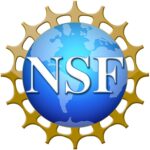Vanderbilt researchers are part of an alliance supported by the National Science Foundation that seeks to build on the use of artificial intelligence (AI) in medical imaging in Middle Tennessee.
 Called the Mid-TN AI for Interdisciplinary Imaging Interpretation Alliance (AI4A), it is comprised of the School of Engineering, Vanderbilt University Medical Center, Fisk University, Tennessee Tech, and Tennessee State University.
Called the Mid-TN AI for Interdisciplinary Imaging Interpretation Alliance (AI4A), it is comprised of the School of Engineering, Vanderbilt University Medical Center, Fisk University, Tennessee Tech, and Tennessee State University.
Scientists say AI has shown impressive accuracy and sensitivity in the identification of imaging abnormalities and promises to enhance tissue-based detection and characterization.
“With this grant we’re looking to grow the computational community in Middle Tennessee,” says Daniel Moyer, assistant professor of computer science at Vanderbilt and the grant’s Principal Investigator. “It will bring us closer with the faculty and students at the other local schools, and allow us to collaborate and learn together.”
The grant will pay for a stipend for senior undergraduate students to do their senior thesis on an AI-imaging topic and provide time with large computational resources.
Researchers say a critical component of the project is the development of human infrastructure and interconnections. To that end, AI4A will host summer faculty fellowships to seed collaborations, and summer student opportunities to engage with pre-doctoral trainees. AI4A will also develop training materials for the technical skills required in AI-imaging, namely GPU computing, deep learning concepts and practice, and current computing environments for high performance computing.
“For imaging and image related research work, GPUs are essential. One key area this grant funds is access to this hardware, which enables so many more projects than before,” says Moyer, whose research focuses on machine learning applied to medical imaging.
The alliance expects to work on imaging problems in radiology, neurology and neuroscience, cell microscopy, ecology and remote sensing, transportation, materials engineering, archeology, digital anthropology, and theory problems around deep networks.
The proposal for the grant – that includes Co-PIs Bennett Landman, Paul Sheldon, and Mark Keever – was supported by Vanderbilt’s Research Development and Support (RDS), which offers proposal development assistance for both private (foundations) and federally funded opportunities. Services include searches for new sponsors, coordination and team building for proposals of any size, content development, and draft review.
To learn more about RDS or request services, contact rds@vanderbilt.edu.
Contact: Lucas Johnson, lucas.l.johnson@vanderbilt.edu